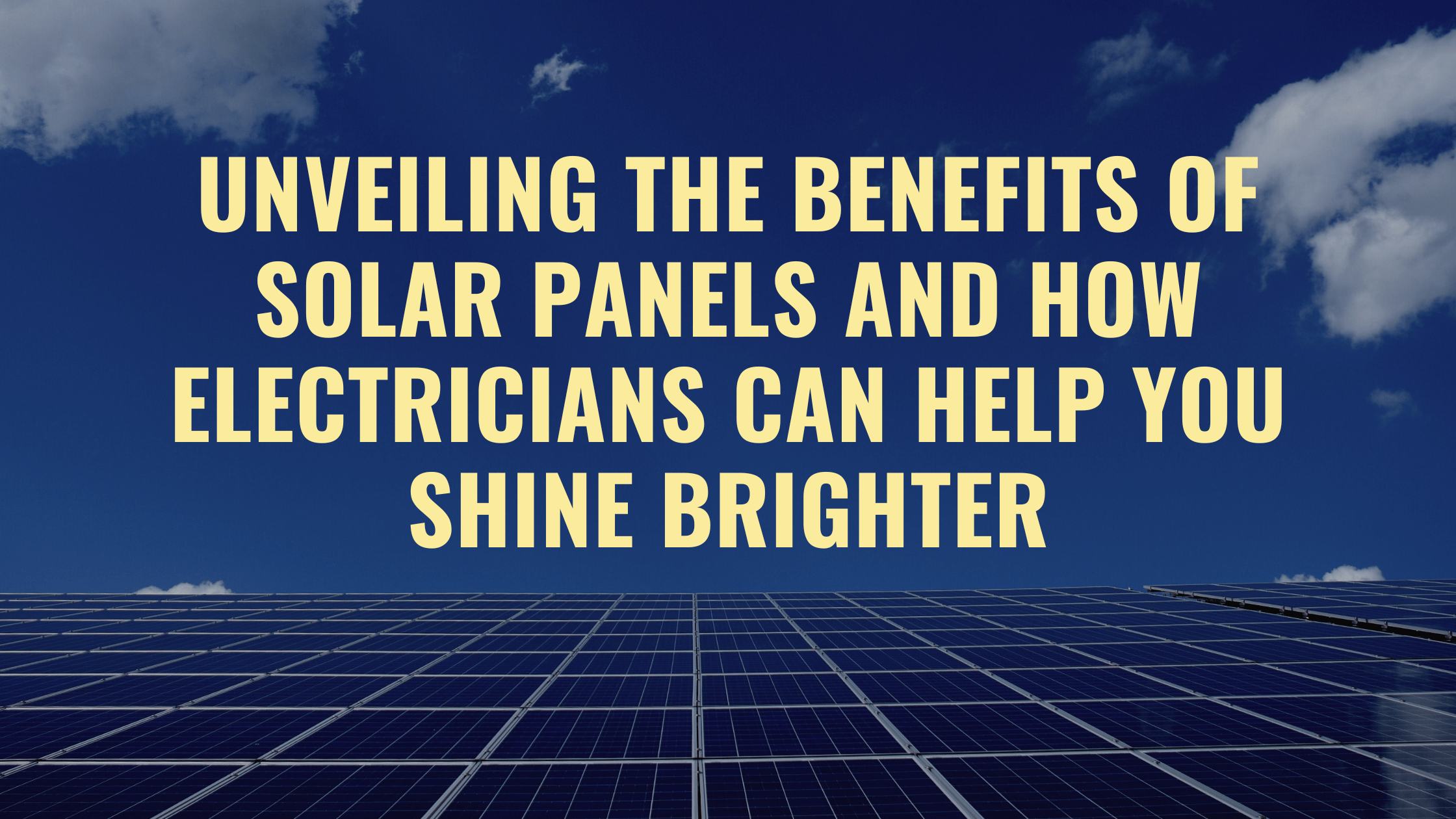Exactly How Solar Power Can Help You Conserve Cash and Minimize Your Carbon Footprint
The integration of solar energy right into your power profile provides a compelling possibility for both economic cost savings and environmental stewardship. By using the sun's power, homeowners can dramatically reduce their month-to-month utility costs while likewise safeguarding versus the unpredictability of future power costs. In addition, the shift to solar contributes to a significant decrease in carbon discharges, straightening individual finance with wider eco-friendly objectives. As different federal government incentives come to be readily available, the question emerges: just how can one effectively browse the first financial investments and recurring advantages of solar innovation to optimize both economic and environmental gains?
Recognizing Solar Energy Savings
While the change to solar power usually entails a first financial investment, understanding solar power cost savings is vital for property owners and organizations alike. Solar power systems can considerably reduce electricity expenses by utilizing the sunlight's energy, equating into significant lasting financial benefits.
Moreover, solar power systems may qualify for numerous monetary motivations, consisting of tax credit scores and rebates, further boosting their cost-effectiveness. The availability of web metering allows customers to sell excess power back to the grid, developing an extra revenue stream. These aspects add to the overall savings related to solar power.

In enhancement to guide monetary cost savings, solar energy provides the added benefit of raising residential or commercial property value. Houses equipped with solar panels are frequently extra appealing to buyers, as they guarantee reduced energy costs - Simply Solar Illinois. Recognizing these elements is essential for anybody considering solar energy, as it highlights not simply the potential monetary gains, however additionally the broader environmental and financial benefits of adopting renewable resource services
Preliminary Prices vs. Long-Term Conveniences
When evaluating solar power, it is essential to consider the preliminary costs versus the long-term advantages. The upfront financial investment for solar panels, installment, and associated tools can be substantial, commonly varying from $15,000 to $30,000, depending upon the system dimension and home energy needs. This initial expenditure may prevent some homeowners; nonetheless, it is crucial to think about the potential savings gradually.
When installed, solar power systems can considerably minimize or also remove month-to-month electrical energy bills, leading to considerable long-lasting monetary benefits. Researches indicate that homeowners can conserve anywhere from $10,000 to $30,000 over the life expectancy of their solar system, normally 25 years. Furthermore, several states supply motivations, tax obligation debts, and rebates that can counter initial costs, making solar extra easily accessible.

Decreasing Your Carbon Impact
Reducing your carbon impact is a vital consideration in today's ecologically aware culture, and adopting solar energy is one of the most effective approaches to achieve this objective. Solar this link power is a clean, renewable resource that considerably diminishes reliance on fossil gas, which are major factors to greenhouse gas exhausts.

In addition, the extensive fostering of solar technology encourages the growth of green tasks and supports technologies in power storage and efficiency. The even more people and companies buy solar power, the greater the collective reduction in carbon emissions, fostering a cleaner atmosphere for future generations.
Federal Government Incentives and Refunds
Taking on solar energy not only benefits the environment yet can also bring about considerable financial cost savings, specifically with the schedule of federal government motivations and refunds. Different federal, state, and local programs are made to encourage property owners and organizations to buy solar energy systems, making the transition a lot more cost effective.
One of one of the most prominent incentives is the Federal Investment Tax Credit History (ITC), which allows planetary system proprietors to subtract a considerable portion of the setup expenses from their federal tax obligations. you can check here This incentive has actually been crucial in minimizing the upfront expenditures related to solar power systems. In addition, several states provide their own tax debts, gives, and discounts that can better improve cost savings.
Moreover, some regional governments provide residential or commercial property tax obligation exceptions for solar installments, ensuring that homeowners do not deal with raised building tax obligations as an outcome of their eco-friendly energy investments. Utility companies might additionally provide motivations, including internet metering and feed-in tolls, which enable solar power users to market excess power back to the grid.
Picking the Right Solar System
Selecting the ideal solar system is vital for optimizing energy effectiveness and monetary advantages. The decision rests on several factors, including energy requirements, budget, and readily available space. House owners need to begin by analyzing their electrical power consumption to figure out the system dimension needed for ideal performance.
Following, take into consideration the different kinds of solar technologies offered. Simply Solar Illinois. Photovoltaic (PV) panels are the most common, converting sunshine straight right into electrical energy, while solar thermal systems concentrate on home heating water. Each kind has distinct advantages depending upon private requirements
Spending plan considerations are additionally vital. First setup costs can differ considerably, so it is very important to contrast quotes from multiple service providers and discover financing choices. Federal government incentives and rebates can even more reduce the financial problem, making planetary systems much more obtainable.
Final Thought
In summary, solar power offers a sensible option for achieving significant price savings while concurrently decreasing carbon exhausts. The initial investment, though substantial, yields substantial long-term economic benefits, with prospective cost savings varying from $10,000 to $30,000 over 25 years. The environmental benefits of solar energy add to sustainable methods critical for combating environment modification. Federal government rewards boost the usefulness of solar modern technology adoption, urging a change towards a cleaner, a lot more economically reliable energy resource.
Comments on “Why Simply Solar Illinois is the Best Choice for Renewable Energy”